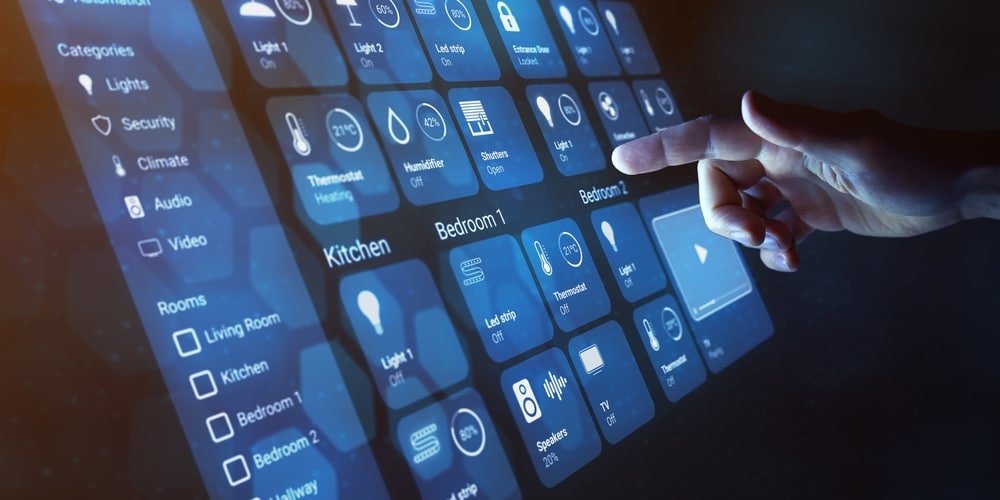Integrating smart home technology transforms energy efficiency in residential spaces, particularly in urban areas like Cebu, Philippines. As the demand for sustainable living solutions rises, smart homes are emerging as a pivotal component in the quest for energy conservation. This article explores how smart homes are revolutionizing energy efficiency, focusing on developments in Cebu.
Understanding Smart Homes
Smart homes utilize interconnected devices, allowing homeowners to manage and monitor their living environments remotely. These systems leverage the Internet of Things (IoT) to automate various household functions, from lighting and heating to security and energy management. A desire for convenience, security, and energy efficiency drives the growing adoption of smart home technology in the Philippines.
The Energy Efficiency Revolution
Smart homes offer a significant advantage in optimizing energy consumption. By leveraging advanced technologies, homeowners can lower their energy bills and reduce their environmental impact. Here are some ways in which smart homes achieve this:
- Automated Heating and Cooling Systems
Smart thermostats and HVAC systems can learn users’ habits and preferences. For instance, they can adjust temperatures based on the time of day or occupancy, ensuring that energy is not wasted heating or cooling unoccupied spaces. This technology is particularly beneficial in Cebu, where the tropical climate necessitates efficient cooling solutions to combat high temperatures and humidity.
- Smart Lighting
Smart lighting systems enable homeowners to remotely control their lights and create schedules for when lights should be on or off. These systems not only enhance convenience but also reduce energy consumption. For example, owners can schedule lights to turn off automatically when no one is home or to be dimmed during the day when natural light is enough. This feature is particularly appealing in urban areas like Cebu, where energy costs can be high.
- Energy Monitoring Systems
Smart homes often include energy monitoring systems that provide real-time feedback on energy usage. Homeowners can track which devices consume the most energy and adjust their usage accordingly. This data-driven approach empowers residents to make informed decisions about their energy consumption, leading to further savings and efficiency improvements.
The Role of Smart Home Companies in Cebu
Cebu is witnessing a surge in the adoption of smart home technology, with several local companies leading the charge. For instance, companies like NMD and SMARTHOUSE PH are at the forefront of integrating smart technologies into residential projects. They offer various services, from installation to ongoing maintenance, ensuring homeowners can easily transition to smarter living environments.
NMD: Pioneering Home Automation
NMD focuses on providing affordable and user-friendly home automation solutions. Their offerings include wired and wireless systems that enhance comfort and promote energy conservation. By integrating innovative technology into everyday living, NMD aims to simplify residents’ lives while contributing to energy efficiency.
SMARTHOUSE PH: Modular and Smart Solutions
SMARTHOUSE PH is notable for its innovative approach to modular homes, designed with energy efficiency in mind. Their prefabricated homes incorporate smart technologies that allow for easy energy management, making them ideal for the environmentally conscious consumer in Cebu.
The Future of Smart Homes in Cebu
As the smart home market continues to grow, the potential for energy efficiency improvements is immense. The Philippine government has also recognized the importance of sustainable living, promoting initiatives that encourage the adoption of green technologies. This supportive environment will likely accelerate the integration of smart home systems across the country.
- AI Integration
The future of smart homes in Cebu will likely see increased integration of artificial intelligence (AI). AI can analyze usage patterns and optimize energy consumption even further. For instance, AI-driven systems can predict when a homeowner will arrive and adjust heating, cooling, and lighting accordingly, ensuring maximum comfort with minimal energy use.
- Water Management Systems
In addition to energy management, smart homes are also beginning to incorporate advanced water management systems. These systems can monitor water usage, detect leaks, and even recycle greywater, which is particularly important in regions like Cebu that experience seasonal droughts and heavy rainfall.
- Health Monitoring Technologies
Smart homes also evolve to include health monitoring technologies that ensure a safe living environment. These systems can track indoor air quality and humidity levels, crucial in tropical climates where mold and other health hazards can thrive. By maintaining optimal indoor conditions, smart homes contribute to the overall well-being of their occupants.
Future Outlook
The revolution of smart homes in Cebu is a testament to the growing awareness of energy efficiency and sustainable living. With the integration of advanced technologies, homeowners can enjoy enhanced comfort, security, and significant savings on energy costs. As local companies continue to innovate and expand their offerings, the future of smart homes in Cebu looks promising, paving the way for a more energy-efficient and environmentally friendly lifestyle. The shift towards intelligent living benefits individual homeowners and contributes to the broader goal of sustainability in the Philippines.


